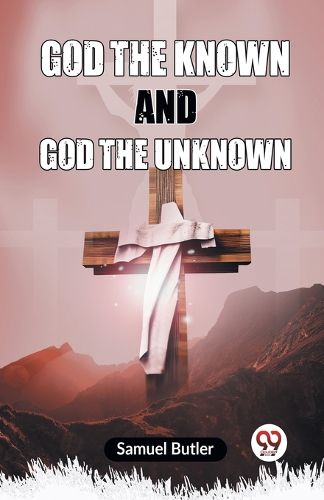Readings Newsletter
Become a Readings Member to make your shopping experience even easier.
Sign in or sign up for free!
You’re not far away from qualifying for FREE standard shipping within Australia
You’ve qualified for FREE standard shipping within Australia
The cart is loading…






This title is printed to order. This book may have been self-published. If so, we cannot guarantee the quality of the content. In the main most books will have gone through the editing process however some may not. We therefore suggest that you be aware of this before ordering this book. If in doubt check either the author or publisher’s details as we are unable to accept any returns unless they are faulty. Please contact us if you have any questions.
"God the Known and God the Unknown," a philosophical treatise authored by using Samuel Butler, offers a profound exploration of theology and the concept of God. The book provides Butler's exceptional perspectives on faith and spirituality, which have been heavily motivated by means of his historical past in the sciences and his highbrow interest. The work is split into elements, as indicated through its identify. In "God the Known," Butler posits that our understanding of God is a mirrored image of our very own human studies and emotions. He suggests that human interpretations of the divine are confined by using our finite potential to recognise the limitless. In "God the Unknown," Butler delves into the mysteries and uncertainties surrounding the divine. He demanding situations hooked up religious dogmas and advocates for a greater open and flexible approach to theological questions. Butler's thought-provoking arguments inspire readers to contemplate the character of faith and spirituality in a crucial and introspective way. Throughout the e-book, Samuel Butler's writing reveals a mix of scientific reasoning and philosophical inquiry, making "God the Known and God the Unknown" an idea-scary and surprisingly seemed paintings that maintains to stimulate discussions on the relationship among humanity and the divine, the bounds of religious knowledge, and the evolving nature of spirituality.
$9.00 standard shipping within Australia
FREE standard shipping within Australia for orders over $100.00
Express & International shipping calculated at checkout
This title is printed to order. This book may have been self-published. If so, we cannot guarantee the quality of the content. In the main most books will have gone through the editing process however some may not. We therefore suggest that you be aware of this before ordering this book. If in doubt check either the author or publisher’s details as we are unable to accept any returns unless they are faulty. Please contact us if you have any questions.
"God the Known and God the Unknown," a philosophical treatise authored by using Samuel Butler, offers a profound exploration of theology and the concept of God. The book provides Butler's exceptional perspectives on faith and spirituality, which have been heavily motivated by means of his historical past in the sciences and his highbrow interest. The work is split into elements, as indicated through its identify. In "God the Known," Butler posits that our understanding of God is a mirrored image of our very own human studies and emotions. He suggests that human interpretations of the divine are confined by using our finite potential to recognise the limitless. In "God the Unknown," Butler delves into the mysteries and uncertainties surrounding the divine. He demanding situations hooked up religious dogmas and advocates for a greater open and flexible approach to theological questions. Butler's thought-provoking arguments inspire readers to contemplate the character of faith and spirituality in a crucial and introspective way. Throughout the e-book, Samuel Butler's writing reveals a mix of scientific reasoning and philosophical inquiry, making "God the Known and God the Unknown" an idea-scary and surprisingly seemed paintings that maintains to stimulate discussions on the relationship among humanity and the divine, the bounds of religious knowledge, and the evolving nature of spirituality.